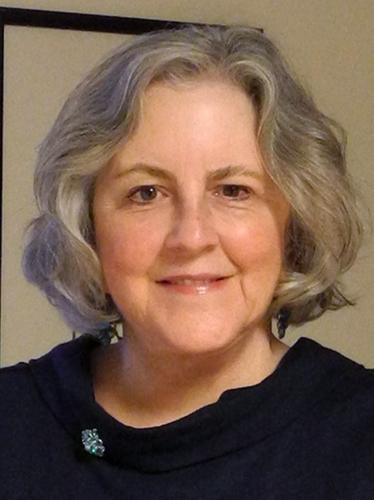PHOENIX т A two-term state lawmaker wants to require health-care providers to disclose up front whether they wonтt provide certain medical services or products based on their religious beliefs.
The proposal by Rep. Pamela Powers Hannley, D-УлшжжБВЅ, would not force doctors, pharmacists or hospitals to serve patients whose needs violate their beliefs. But she said itтs only fair that would-be patients are made aware of that ahead of time, before they show up for services they cannot get.
Powers Hannley said this is about more than doctors who will not prescribe birth control pills or the Plan B emergency contraception, or about pharmacists who will not dispense it, even with a proper prescription. She said many people, including trans people, may want to know up front whether a doctor they need т or even one assigned by an insurance company т will turn them away.
People are also reading…
тThey donтt want to be embarrassed,т Powers Hannley said.
At the center of the issue is a state law that prohibits the government from denying, suspending or revoking anyoneтs professional or occupational license for тdeclining to provide or participate in providing any service that violates the personтs sincerely held religious beliefs.т The sole exception to that involves law enforcement officers.
A separate and more specific statute says pharmacists, hospitals and health professionals are тnot required to facilitate or participate in the provision of an abortion, abortion medication, emergency contraception or any medication or device intended to inhibit or prevent implantation of a fertilized ovumт if they object тon moral or religious grounds.т
And that law does not require pharmacists who refuse to fill a prescription to refer the customer to someone else who will.
тI think people should know if a health-care institution or a health-care provider is not willing to offer all of the legal drugs and services that are within their scope of practice because those drugs or services are not aligned with their deeply held religious beliefs,т she said. тItтs like a тbuyer bewareт or a тpatient right to know.тт
As crafted, HB 2068 would require any health-care entity that does not provide certain health-care services based on religious beliefs to provide a complete list of what a patient cannot get.
The way Powers Hannley envisions it, any list prepared by a pharmacy would have to be placed on the companyтs website.
тA lot of people shop a little bit online before they go someplace,т she said. тOr they could be purchasing these drugs online.т
Also an option, Powers Hannley said, would be a sign at the pharmacy window.
The same disclosure, she said, would apply to doctors, with any websites disclosing that patients cannot get a specific medical treatment even if it is within the physicianтs scope of practice. Powers Hannley said itтs not unusual for people to search out doctors on the internet.
тI donтt want to waste anybodyтs time,т she said.
That, Powers Hannley said, is especially true for those whose gender identity differs from what is assigned at birth.
тI donтt want the trans person to be embarrassed or upset by showing up to a doctor thatтs not going to give them a physical,т she said. тLet them know in advance so when theyтre shopping they know who is going to be willing and qualified to serve them.т
That issue of qualifications, Powers Hannley said, is particularly important.
тTrans people have special needs,т she explained.
тThey have hormones they take,т Powers Hannley continued. тI mean, thereтs a lot going on there.т
And, if nothing else, she said patients who may want a simple physical need to know тwhoтs going to be accepting of your lifestyle.т
Powers Hannley said patients should be informed of a hospitalтs policy as soon as possible after arriving т and as quickly as possible to allow for the patient to be transferred if need be. Cathi Herrod, president of the Center for УлшжжБВЅ Policy, which has pushed for religious exemptions for health-care providers and businesses, said she could not comment on this proposal as she not yet had a chance to review it. That also was the response from Kelly Fine, CEO of the УлшжжБВЅ Pharmacy Association, who said the measure would need to be reviewed by the organizationтs board of director and legislative committee.
On Twitter: @azcapmedia


















